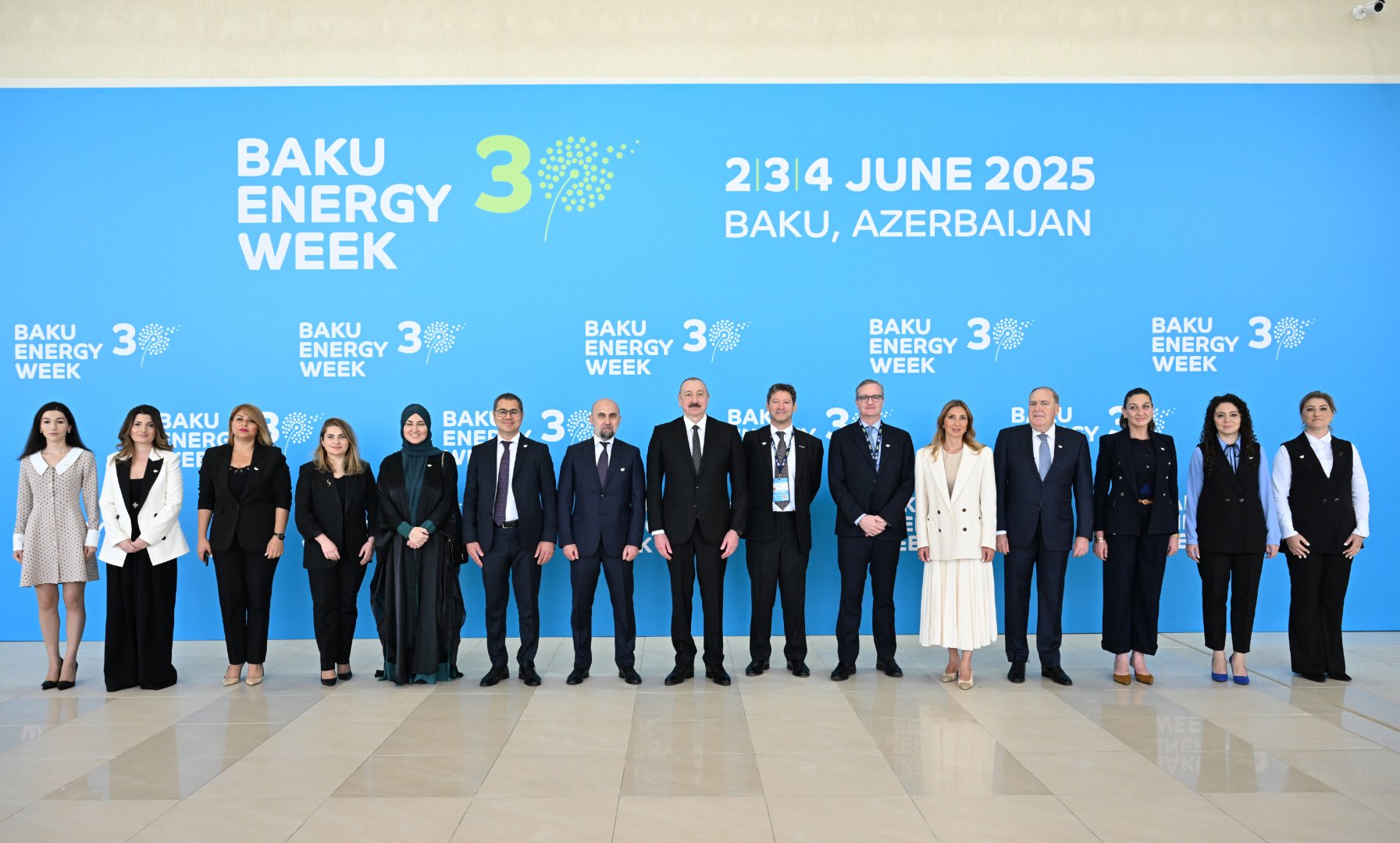BAKU, Azerbaijan, June 5. The Baku Energy Week, held from June 2 to 4, once again highlighted Azerbaijan’s growing role as a key player in the global energy landscape.
While the global energy transition is often driven by ideological narratives and short-term expectations, Azerbaijan is taking a pragmatic, resilient, and balanced approach - bridging traditional and renewable energy sources.
Several strategic agreements were signed during the week, underscoring the rising interest of international partners in Azerbaijan’s energy potential - from oil and gas exploration and production to solar power and joint green energy initiatives.
Expanding gas reach and forging new partnerships
Azerbaijan is steadily strengthening its role in European energy markets. As President Ilham Aliyev noted at the event’s opening ceremony, Azerbaijani gas is now being exported to twelve countries - a clear sign of the country's growing energy footprint.
"And this is not the end. We are still in the process of negotiations and also making investments with some countries to expand our geography. With respect to the coverage of geography by pipeline gas, I think Azerbaijan is now one of the leading countries on a global scale," said President Ilham Aliyev.
At the event, the Shah Deniz consortium announced the final investment decision for the Shah Deniz Compression (SDC) project - the next stage in developing the massive Shah Deniz gas field, which supplies natural gas to global markets. This project focuses on extracting gas from lower reservoir pressures to maximize the recovery of remaining resources. It’s expected to unlock an additional 50 billion cubic meters of gas and around 25 million barrels of gas condensate for export.
Meanwhile, bp completed the acquisition of stakes in two offshore blocks on Azerbaijan’s Caspian shelf - the Karabakh oil field and the Ashrafi-Dan Ulduzu-Aypara (ADUA) block.
Other key developments in the oil and gas sector include agreements between SOCAR and Hungary’s MOL Group for joint exploration, development, and production in the Shamakhi-Gobustan area. The Turkish Petroleum Corporation (TPAO) also joined the Shafag-Asiman offshore block development project. Additionally, SOCAR signed cooperation agreements with companies like ExxonMobil and Gran Tierra Energy.
These projects not only aim to boost production but also strengthen energy integration across the region.
Ambitious goals for the green agenda
At the opening ceremony of Baku Energy Week, President Ilham Aliyev gave an in-depth overview of the country’s energy strategy: "So, in our case, we are increasing production of natural gas to satisfy the needs of countries, which are waiting for it, and at the same time, investing together with partners in our green energy projects".
President Ilham Aliyev noted that by 2030, based on already signed contracts and investment commitments, Azerbaijan plans to have 6.5 GW of renewable energy installed capacity. That will be more than 35% of the country's total energy grid.
Agreements signed during Baku Energy Week in solar energy and infrastructure electrification represent a major milestone in Azerbaijan’s ambitious plan to have renewables account for over 35% of its energy mix by 2030.
The Ministry of Energy signed a land lease agreement with Enerso Jabrail LLC for the 50 MW Shams solar power project, and another lease with Universal Solar Azerbaijan for a 100 MW solar plant in Gobustan.
A broad strategic cooperation deal was also inked with China Energy Engineering Corporation Limited. In addition, agreements were made with OAO Norm for solar projects in Jabrayil, and the Ministry extended its energy transition memorandum with Maire Tecnimont S.p.A.
Meanwhile, Shafag (Jabrayil) Solar Limited (SJSL) - a joint venture between bp, SOCAR Green, and the Azerbaijan Business Development Fund (ABDF) - gave the green light to begin construction of the 240-megawatt Shafag solar plant in Jabrayil.
On another front, investors at the Sangachal terminal - including bp, SOCAR, TPAO, LUKOIL, South Gas Corridor, NIKO, MOL, INPEKS, ExxonMobil, ITOCU, ONGC Videsh, Eni, MVM, and TotalEnergies - approved a project to electrify the terminal. This will connect it to the national grid operated by Azerenerji JSC, with new infrastructure including a 220/110 kV substation planned both on-site and nearby.
These steps underscore Azerbaijan’s strong commitment to its green energy goals while showcasing a balanced approach that combines renewables with traditional energy sources - positioning the country as a key player in the global energy transition.
Realism as a guiding energy philosophy
Azerbaijan is steadily pursuing a pragmatic and balanced approach to its energy transition, advancing renewable energy while managing its traditional resources thoughtfully. This strategy, designed to avoid the risks of an abrupt shift away from fossil fuels, has received backing from major international energy organizations, including OPEC.
In an exclusive interview with Trend, OPEC Secretary-General Haitham al-Ghais said: "We are not against the fact that there will be an increase in the penetration of renewable energies. However, we believe that renewable energies alone cannot fuel the world's economic growth and future energy requirements. The world has to become more realistic and pragmatic in terms of adopting all energies".
Emphasizing that oil and gas still make up 55% of the global energy mix, and coal brings that figure up to 80%, he added: "Since the 1980s, it has also been around 80%. The world has spent nearly $10 trillion in the last 20 years to transition away from fossil fuels. But this has not happened. Because the world is consuming more oil, more coal, more gas than ever before".
As such, OPEC forecasts global oil demand to hit a record 106 million barrels per day by the end of 2025, and surpass 120 million by 2050.
This international backing for a balanced approach, as highlighted in OPEC’s statements, underscores the validity of Azerbaijan’s strategy - one that avoids short-term trends and focuses on building a sustainable, realistic energy future.







